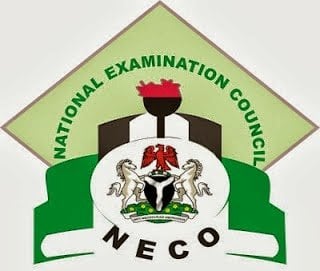
Before teaching you how to best attempt questions on literature English, you need to understand the Dos and Donts of literature in English.
1. Literature is Not Story-telling
It is compulsory for you to know the story line of every text recommended but it is not right for you to start narrating the whole story each time a question is asked on the book. Note that examiners are specific in their questions and you too have to be specific in your answers, For example in the question: Give a vivid account of the first encounter between Raina and Bluntschli in the play Arms and the Man by Benard Shaw, you will be wrong if you start to narrate what happens in the whole book because the question only wants you to discuss only event in their first meeting and the meaning you can read to each
For Example;
- Bltuntschh escapes from war and jumps through the window into Raina’s room
- Kaina protects Buntschli from the soldiers searching for him.
- She gives him chocolate cream to eat
- Raina and the man have a friendly discussion,
- She brings in her mother to see him.
- She puts her portrait (Photograph) in the coat (her father’s coat) she asks him to escape with.
All these show that she is getting in love with him. When answering this question your narration will start from the time Bluntschli jumps in to Raina’s room to end where Raina gives him her father’s coat to disguise in order to make a safe and final escape.
2. Literature Is Not A Subject In Which You Like In Some Aspects Without All
What I am saying is that you must love poetry, love prose, love drama and know the literary terms. You should not have interest in only one or two of them. Don’t say you hate poetry or prose or drama. If you want to pass you should be sound in all of them because in the examination you are going to be penalized if you answer questions on only two aspects.
3. Literature Is Not Cramming
You don’t have to cram verses in poems or quotation in drama in order to qualify as a Literature student, In fact cramming disappoints when if it is done under duress. what l am saying is that you are going to be naturally, familiar with the quotations in the text if you read them constantly and interestingly (with interest.in fact, no teacher will ask you to cram How many poems or drama books will you cram? But with constant reading you get close to the events and verses and you will be able to quote them with ease to buttress your points.
4. Literature is Not a Subject You Write Clumsily Without Clarity
One of the best ways to answer questions on Literature in English is write down your answer in a very clear language correctly if you want to earn full mark on the question being asked. If you are able to explain your points in good English you will earn good marks unlike somebody who has idea but without good expression. Permit me to reveal a secret in Literature, your grammar is not marked in Literature. That is why you see some students failing English, but passing Literature. But the fact remains too that if you don’t express yourself in good English in Literature you will score a mark far below expected in each question answered (in spite the examiner is marking points not English.) Literature examiner marks on impression. But do you impress with bad expression or lack of clarity.
Having discussed what you have to avoid in Literature in order to earn good marks, let me now discuss what you MUST do to earn good marks in Literature examinations.
6 Tips/Strategies for Answering Questions on Literature in English
1) Firstly, ensure you understand what the question is asking you and you should be able to write extensively on it. Study the question well and be sure of what it demands while taking note of the time allotted.
2) You must have a clear knowledge of the story line and the theme of each recommended book and poem. And to get this knowledge you must first read the books and poems, then read notes on them, apart from the mandatory attending Literature classes.
3) Know where to start you answer. Some questions have their answers a the beginning of the text, some at the middle, some at the end, and even some have theirs all round the text. In that sense you have to pick you points at every stage of events in the story. What I discuss in number one of the first part of this topic will guide you further. In poetry, when you are asked to discuss the theme, or a particular theme about a poem don’t go on to discuss mood. And when you are asked to discuss style, don’t start discussing theme. Be specific in your answer as the examiner. However,please note that whatever question is asked in poetry you must first write something little on the theme of that poem. This will gear you up to recollect all the aspects of the poem, and also first let the examiner know you have truly read the poem. Learn to appreciate a poem, but when answering questions on poetry appreciate ONLY the area you are asked to.
4. You should be able to quote to support your answer. The evidence that you actually read the recommended texts is your ability to use quotations to marshal your points. Quotation is highly essential in poetry where you have to quote examples of poetic devices; if you want to impress the marker/examiner. Quotations come with ease if you have read the texts as expected.
5. Again, you have to know the genesis to revelation of Literature. What l am saying is that you must know the rudiments of Literature and be able to identity them when you see them and know their effects. It starts from the definition of Literature. Then you should be able to identify the literary terms, the dramatic elements, the poetic elements, the narrative techniques, the genres of Literature, the figures of speech and the unseen prose and poetry. All these will be tested in the objectives (multiple-choice questions). In essence, the Literature syllabus has to be covered in its entirety.
6. Finally, you should be as independent as possible in the exam hall. Don’t cheat. Don’t copy anyone and don’t allow anybody to copy your answers because the examiner will detect if two or more people write the same answer using the same expression). In this sense you will be marked down, if your literature result is not withheld. It is only in Mathematics that everybody arrives at the sane answer. In Literature, you may have the same opinion, but your English (expression and explanation) can never be the same.
If you follow the tips and strategies on how to answer questions on literature in English explained above, you can be rest assured that a distinction in Literature awaits you in your result.


